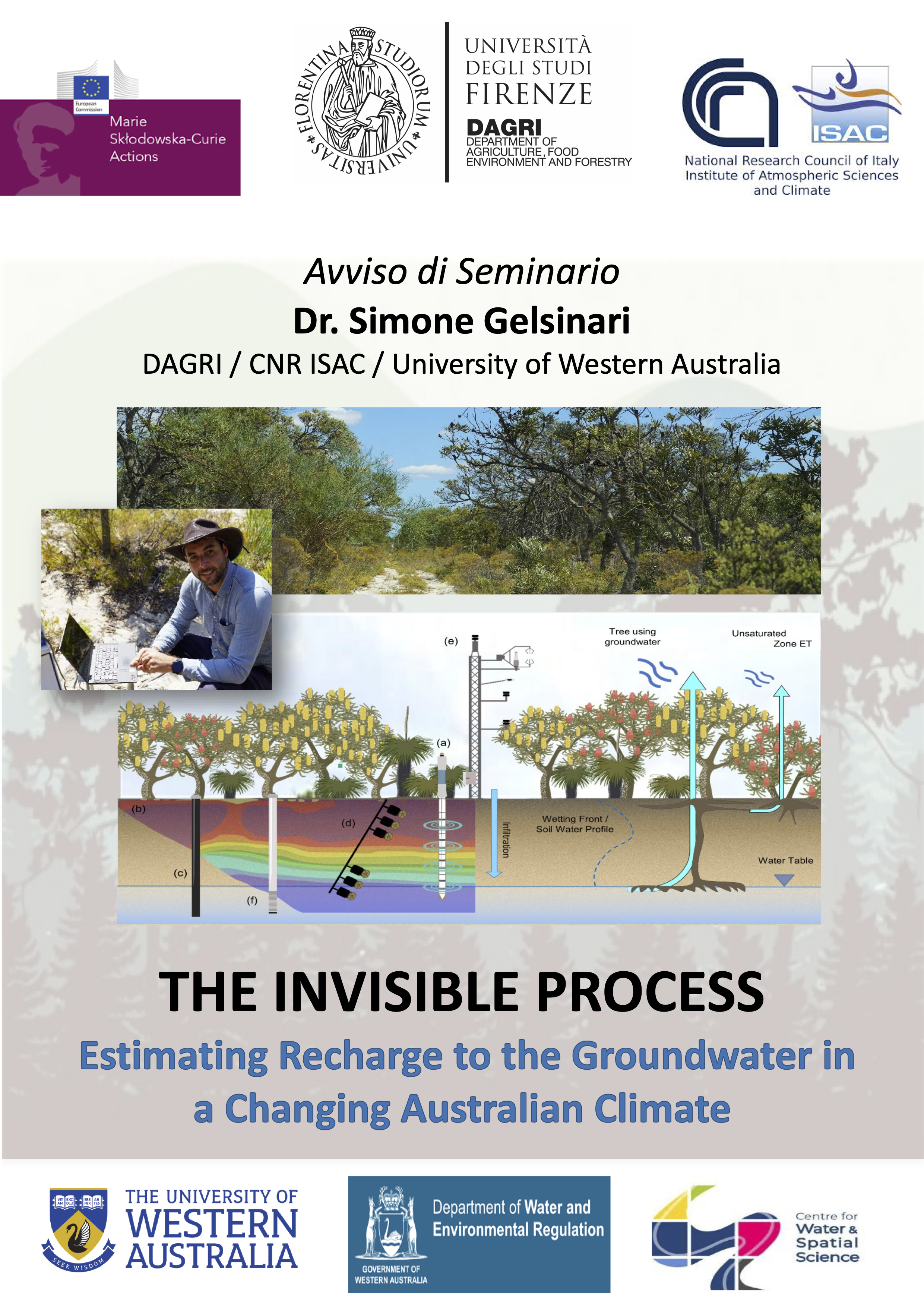Abstract
Understanding the impact of climate change on groundwater recharge is crucial for the sustainable management of aquifers. Numerical models assist regulatory agencies in licensing decisions, but they rely on estimates of recharge fluxes that can be highly uncertain. Furthermore, management strategies in response to climate change face challenges such as the lack of empirical data to validate predicted changes or backing up processes that are not entirely understood.
The insights obtained from this type of station can be utilised to understand the effect of diverse land uses, soil types, and climatic drivers on recharge and evapotranspiration fluxes. Estimates can then be benchmarked against broader observations, such as data provided by remote sensing or borewell measurements, while quantifying different sources of uncertainty (e.g. methodological or epistemic), generating robust databases useful for water resources models.
Bio
Simone is a Marie Curie research fellow at the DAGRI within the Universita' di Firenze and CNR - ISAC in Bologna. He spent 4 years at UWA in Perth after completing a joint PhD between Monash University in Melbourne and CSIRO Land & Water. With an international background in Hydraulic and Environmental Engineering (University of Pisa - Italy ), and a PhD in civil engineering (Monash and CSIRO), his experience spans hydrology, numerical modelling, field data collection, quantitative hydrology, remote sensing and model-data fusion techniques. He is passionate about water, vegetation and their intricate connection in the natural and built environment.

